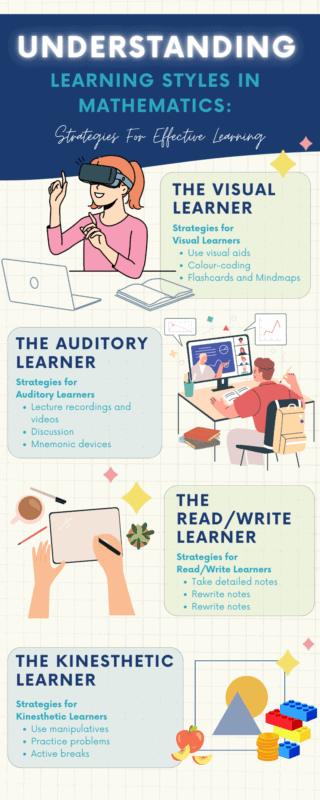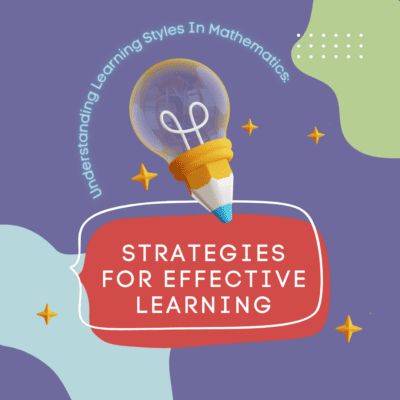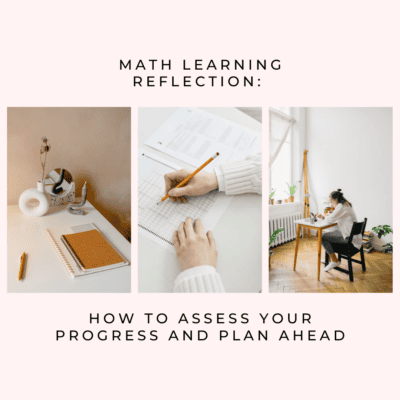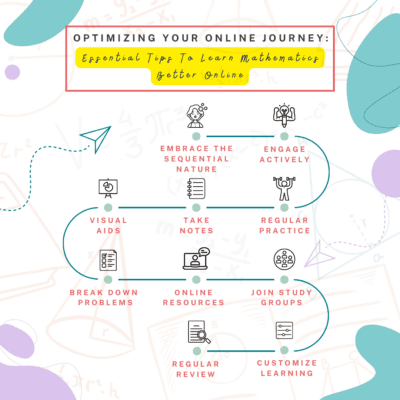There is no one-size-fits-all approach to learning, especially when it comes to mathematics. Everyone has unique preferences and ways of understanding, often referred to as ‘learning styles’. This article explores the most common learning styles in mathematics and proposes strategies for each to enhance the learning process.
The Visual Learner
Visual learners process information best when they can see it. They usually have a strong sense of space and may think in images. Mathematical graphs, diagrams, and symbols might be easier for them to understand than words or spoken explanations.
Strategies for Visual Learners
- Use visual aids: Diagrams, graphs, and charts can be powerful tools for understanding mathematical concepts. For example, if you’re learning about quadratic functions, try plotting them on a graph.
- Colour-coding: Use different colours to distinguish between different elements, like variables, constants, and operations. This can help break down complex equations or problems into more manageable parts.
- Flashcards and Mindmaps: Use these for memorizing formulas, definitions, and theorems. They provide a visual aid that can help recall information more easily.
The Auditory Learner
Auditory learners thrive on spoken language and sound. They often prefer to listen to explanations rather than read about them, and they might remember things better if they say them out loud.
Strategies for Auditory Learners
- Lecture recordings and videos: Make use of online platforms that provide video lectures. These resources allow you to hear mathematical concepts explained verbally.
- Discussion: Engage in discussions about mathematical concepts with classmates or tutors. This can include explaining your reasoning or processes aloud, which helps consolidate your understanding.
- Mnemonic devices: Come up with rhymes, songs, or phrases to help remember formulas or rules.
The Read/Write Learner
Read/write learners prefer information that is displayed as words, whether it be reading a textbook or listening and taking notes during a lecture. These learners tend to enjoy writing essays and reports, as well as reading articles and books.
Strategies for Read/Write Learners
- Take detailed notes: Write out explanations for mathematical concepts in your own words, as this process can facilitate a deeper understanding.
- Rewrite notes: This is especially beneficial when studying for tests. The act of rewriting allows for further processing and reinforcement of the information.
- Read widely: Make use of textbooks, math blogs, and articles to understand different perspectives on a concept.
The Kinesthetic Learner
Kinesthetic learners learn best by doing and moving. They may prefer hands-on activities and can find it challenging to sit still for long periods.
Strategies for Kinesthetic Learners
- Use manipulatives: Physical objects like blocks, coins, or geometric models can help visualize and understand mathematical concepts, such as fractions, algebra, or geometry.
- Practice problems: Engage in frequent hands-on problem-solving. The physical act of writing out solutions can be beneficial.
- Active breaks: Incorporate short breaks into your study routine where you move around. This can help maintain focus during study sessions.

In conclusion, understanding your preferred learning style can greatly improve your mathematical learning experience. It’s important to remember that everyone has a unique mix of learning styles, and what works best for you might not work for someone else. The most effective approach often involves a blend of different strategies. So, experiment with different methods and find the one that suits you the best. After all, mathematics is not just about finding the right answers—it’s also about finding the right way to learn.





